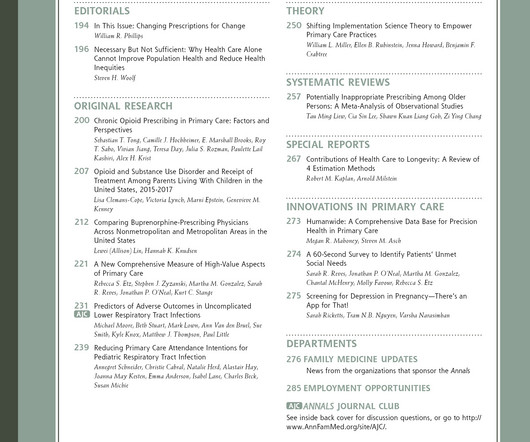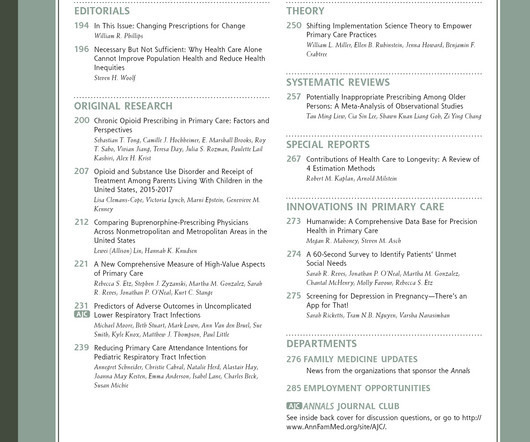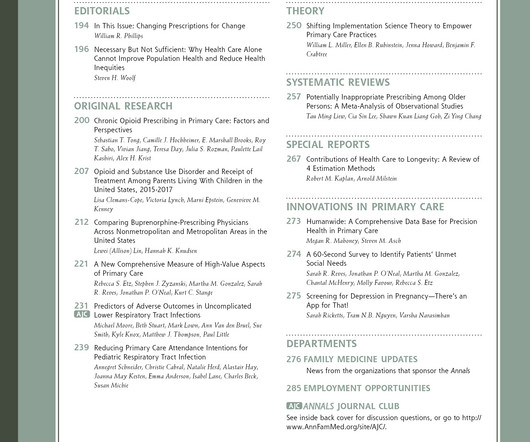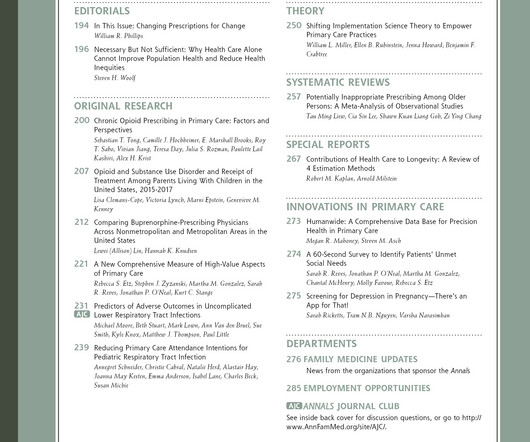Compass Rose for Generating Community-based Referrals via Epic: Best Practices and Lessons Learned [Social determinants and vulnerable populations]
Annals of Family Medicine
NOVEMBER 20, 2024
Setting or Dataset: We used data from Epic on social needs screening and Compass Rose utilization. A Compass Rose episode was automatically generated in the patient’s medical record in Epic if patients indicated that they had at least one of the four social risk factors on the screening tool.














Let's personalize your content